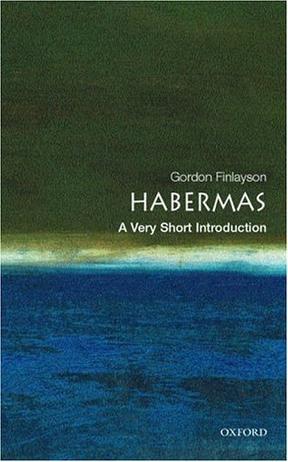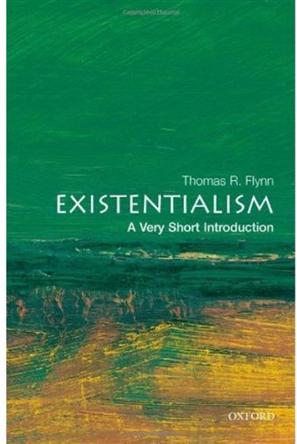-

German Philosophy
German philosophy remains the core of modern philosophy. Without Kant, Frege, Wittgenstein, and Husserl there would be no Anglo-American 'analytical' style of philosophy. Moreover, without Kant, Hegel, Marx, Nietzsche, and Heidegger, the 'Continental Philosophy' of Derrida, Foucault, Deleuze, Badiou, and Zizek, which has had major effects on humanities subjects in recent years, is incomprehensible. Knowledge of German philosophy is, then, an indispensable prerequisite of theoretically informed study in the humanities as a whole. German Philosophy: A Very Short Introduction discusses the idea that German philosophy forms one of the most revealing responses to the problems of 'modernity'. The rise of the modern natural sciences and the related decline of religion raises a series of questions, which recur throughout German philosophy, concerning the relationships between knowledge and faith, reason and emotion, and scientific, ethical, and artistic ways of seeing the world. There are also many significant philosophers who are generally neglected in most existing English-language treatments of German philosophy, which tend to concentrate on the canonical figures. This Very Short Introduction will include reference to these thinkers and suggests how they can be used to question more familiar German philosophical thought. -

Heidegger
Martin Heidegger (1889-1976) is probably the most divisive philosopher of the twentieth century. Considered by some to be the greatest charlatan ever to claim the title of 'philosopher', by some as an apologist for Nazism, he was also an acknowledged leader and central figure to many philosophers. Michael Inwood's lucid introduction to Heidegger's thought focuses on his most important work, 'Being and Time', and its major themes of existence in the world, inauthenticity, guilt, destiny, truth, and the nature of time. These themes are then reassessed in the light of Heidegger's later work, together with the extent of his philosophical importance and influence. This is an invaluable guide to the complex and voluminous thought of a major twentieth-century existentialist philosopher. -

Habermas
Description * Provides a completely up to date and much-needed entry into the long and forbiddingly technical works of the most influential German philosopher alive today * Covers Habermas's influence on a wide variety of fields, including philosophy, political and social theory, cultural studies, sociology, and literary studies * Explains how Habermas's ideas are applied to present day social and political situations * Unlike other writings on Habermas, this explains his intellectual framework and technical vocabulary rather than simply adopting it This book gives a clear and readable overview of the philosophical work of Jurgen Habermas, the most influential German philosopher alive today, who has commented widely on subjects such as Marxism, the importance and effectiveness of communication, the reunification of Germany, and the European Union. Gordon Finlayson provides readers with a clear and readable overview of Habermas's forbiddingly complex philosophy using concrete examples and accessible language. He then goes on to analyse both the theoretical underpinnings of Habermas's social theory, and its more concrete applications in the fields of ethics, politics, and law; and concludes with an examination how Habermas's social and political theory informs his writing on contemporary, political, and social problems. =========================================== Contents Preface: Who is J?rgen Habermas 1. Habermas and Frankfurt School Critical Theory 2. Habermas's New Approach to Social Theory 3. The Pragmatic Meaning Programme 4. The Programme of Social Theory 5. Habermas's Theory of Modernity 6. Discourse Ethics I: The Discourse Theory of Morality 7. Discourse Ethics II: Ethical Discourse and the Political Turn 8. Politics, Democracy, and Law 9. Politics Beyond The Bounds Of The Nation Alone -

Continental Philosophy
Simon Critchley's Very Short Introduction shows that Continental philosophy encompasses a distinct set of philosophical traditions and practices, with a compelling range of problems all too often ignored by the analytic tradition. He discusses the ideas and approaches of philosophers such as Kant, Hegel, Nietzsche, Husserl, Heidegger, Sartre, Habermas, Foucault, and Derrida, and introduces key concepts such as existentialism, nihilism, and phenomenology by explaining their place in the Continental tradition. -

Atheism
Atheism is often considered to be a negative, dark, and pessimistic belief which is characterized by a rejection of values and purpose and a fierce opposition to religion. Atheism: A Very Short Introduction sets out to dispel the myths that surround atheism and show how a life without religious belief can be positive, meaningful, and moral. It also confronts the failure of officially atheist states in the Twentieth Century. The book presents an intellectual case for atheism that rests as much upon positive arguments for its truth as on negative arguments against religion. -

Existentialism
Existentialism was one of the leading philosophical movements of the twentieth century. Focusing on its seven leading figures, Sartre, Nietzsche, Heidegger, Kierkegaard, de Beauvoir, Merleau-Ponty and Camus, this Very Short Introduction provides a clear account of the key themes of the movement which emphasized individuality, free will, and personal responsibility in the modern world. Drawing in the movement's varied relationships with the arts, humanism, and politics, this book clarifies the philosophy and original meaning of 'existentialism' - which has tended to be obscured by misappropriation. Placing it in its historical context, Thomas Flynn also highlights how existentialism is still relevant to us today.